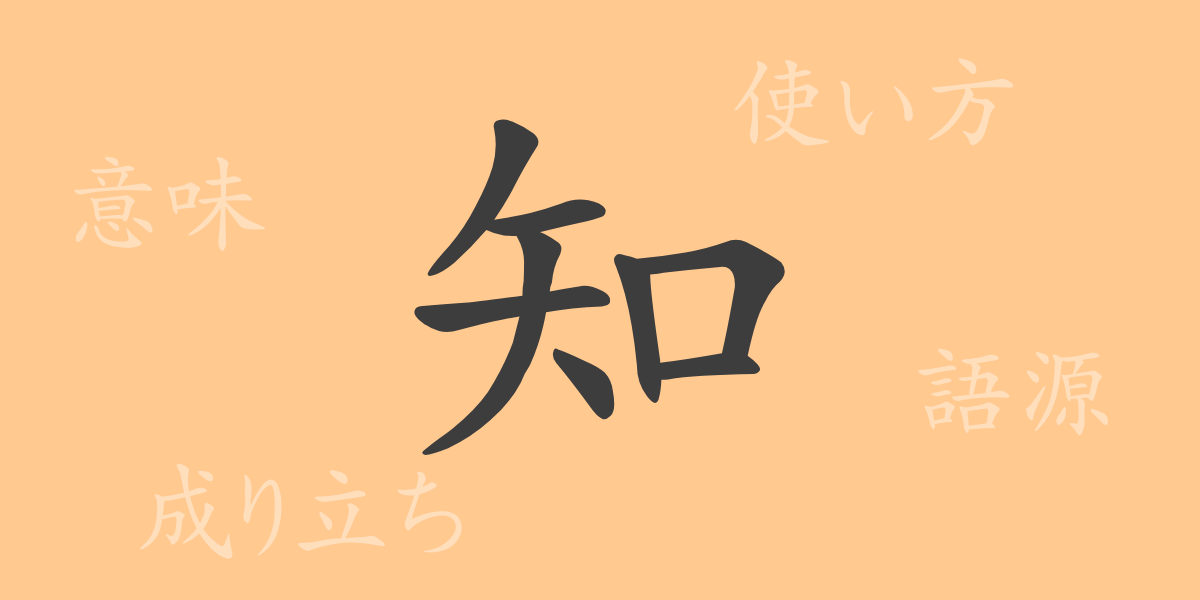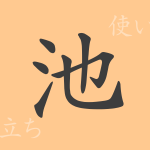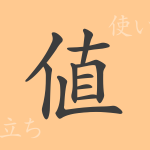The Japanese language is enriched by numerous kanji, each with its unique meaning and history. The kanji “知(しる) (shiru)” is deeply rooted in our daily lives, appearing in various expressions and idioms. In this article, we will delve into the origins, meanings, usage, and memorable idioms and proverbs associated with “知(しる) (shiru).” Let’s explore the world of the commonly used kanji “知(しる) (shiru)” together.
Origin of “知(しる) (shiru)”
The kanji “知(しる) (shiru)” can trace its origins back to ancient Chinese oracle bone script. It originally depicted the head of a person with an open mouth, symbolizing knowledge and understanding. This form evolved into the current “知(しる) (shiru),” which combines the head and mouth to represent concepts related to human thought and recognition. “知(しる) (shiru)” symbolizes knowledge, awareness, and intelligence.
Meaning and Usage of “知(しる) (shiru)”
The kanji “知(しる) (shiru)” means “to know,” “to be aware,” and “to understand.” It also extends to concepts like “knowledge,” “intelligence,” and “wisdom,” representing the mental richness gained through learning and experience. In terms of usage, “知る(しる) (shiru)” as a verb, “知識(ちしき) (chishiki)” as a noun, and expressions like “知恵を絞る(ちえをしぼる) (chie o shiboru)” (to use one’s wits) and “知人(ちじん) (chijin)” (acquaintance) are common in both spoken and written Japanese.
Readings, Stroke Count, and Radical of “知(しる) (shiru)”
The kanji “知(しる) (shiru)” is one of the basic kanji taught early in Japanese schools.
- Reading: The On’yomi (音読み) reading is “チ(ち) (chi),” and the Kun’yomi (訓読み) readings are “し.る (shiru)” and “し.らせる (shiraseru).”
- Stroke count: “知(しる) (shiru)” consists of 8 strokes.
- Radical: The radical is “矢(や) (ya),” which is related to arrows.
Idioms, Proverbs, and Expressions Using “知(しる) (shiru)” and Their Meanings
There are many idioms, proverbs, and expressions containing “知(しる) (shiru)” in Japanese. Basic idioms include “知恵(ちえ) (chie)” (wisdom), “知識(ちしき) (chishiki)” (knowledge), and “知人(ちじん) (chijin)” (acquaintance). The proverb “知らぬが仏(しらぬがほとけ) (shiranu ga hotoke)” means “ignorance is bliss,” implying that not knowing something can keep you from worrying about it. Additionally, “知恵を絞る(ちえをしぼる) (chie o shiboru)” means to use one’s wits to solve a problem, and “知り尽くす(しりつくす) (shiri tsukusu)” means to fully understand something.
Summary of “知(しる) (shiru)”
The kanji “知(しる) (shiru)” is essential for expressing human intelligence and cognitive abilities. It enriches Japanese communication through its various expressions and idioms. By understanding the deep meaning and background of “知(しる) (shiru)” through this article, we hope you can incorporate this knowledge into your daily language use.

























